Designing Summer Workshops: Basic Planning
While they take quite a bit of planning, camps and workshops can be a great way to shake up a summer lesson schedule. If you haven’t tried a workshop or camp in your studio yet, here are a few basic planning concepts to consider:
What music/theory/performance concepts do you want to include?
A workshop or camp should be both educational and fun. When answering this question, I turn to my students for inspiration. I consider the strengths and weaknesses I’ve seen over the past year, and I also try to look for common interests. Here’s a list of our workshops and camps from 2012 and 2013:
- “Off the Printed Page” – Focused on ear-training, harmonization, and improvisation. Students learned how to lead sheets and use the Circle of 5ths.
- “Camp Composer” – Students learned several creative ways to write short compositions (water xylophone, art to music, and drawing compositions).
- “Vocal Audition Camp” – Designed for teen singers to work on audition skills. Featured individual and class work with a voice teacher and accompanist.
- “Musical Olympics” – Outdoor music camp with Olympic style friendly competition games designed to build rhythmic and note recognition skills.
- “Movie Magic” – A teen music history course focused on the film scores by John Williams. The final project was a film written, acted, and scored by students.
- “Power, Path, and Performance” – Vocal workshop to teach the technique concepts by singer Judy Rodman. Included a public performance at the end of the week.
What age range do you want to teach?
This will depend largely on your demographics of your studio. If you have a large studio with a wide range of ages, it might be easier to split them into groups. I typically like to offer one piano camp geared towards my younger students, perhaps from 6 to 12 years old, then another piano camp from 12 to 18 years old, and a voice camp from 14-22 years old.
Groups will also depend on the level of your students.
If you have a wide range of levels in one age group, you’ll need to plan activities that can accommodate everyone. This is where group activities become particularly important – they will allow less experienced students to be included, and will give more experienced students the chance to practice their “teaching skills” by helping out.
Note on age ranges: The age ranges I set for groups are typically suggestions. You will always find students that are exceptions to the rule. Perhaps they are mature for their age, or they have a deeply rooted interest in a topic. Flexibility can be a good thing, as long as you do not place them into a workshop where they will get frustrated or bored.
How long do you want to meet?
For the past two years, our workshops met for 4 days, 2 hours each day. This was convenient so that I could also offer private lessons later in the day if I wished. If your workshop or camp includes a final performance, it might be wise to expand the final day to 3 hours, or push the performance onto a 5th day, at a time when parents and friends can attend. With younger groups, you will need to plan a small “break time” and either provide snacks or ask them to bring their own.
Once you answer these three questions, you’ll have a general idea of what kind of resources/games/materials you will need. There are many great music blogs and websites out there with tons of information that you can use to create your very own camp. I’m in the midst of developing our 2014 summer schedule. Stay tuned for LOTS of information and resources!
- Part 1: Basic Planning
- Part 2: Scheduling
- Part 3: Announcements!
- Part 4: Registration & T-Shirts
- Part 5: The Daily Schedule
Looking for more?
Work With Me: If you need 1:1 support to develop a summer camp program that will boost your income and establish your studio as the “go to” place for fun and creative piano lessons, book a Discovery Session with me today. We’ll chat about where you are — where you WANT to be — and what kind of a plan you’ll need to get there. Learn more about my private coaching offerings here.
Self-Paced Online Course: Check out Group Lessons 101. It’s a fast and organized way to get started!








![[Guest Post] 3 Main Ingredients to Teaching Students To Play By Ear](https://sarasmusicstudio.com/wp-content/uploads/2018/07/Guest-Post-from-pianopicnic.com-1-370x370.png)